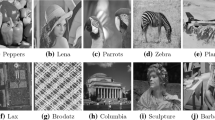Abstract
Diffusion models, originally introduced for image generation, have recently gained attention as a promising image denoising approach. In this work, we perform comprehensive experiments to investigate the challenges posed by diffusion models when applied to medical image denoising. In medical imaging, retaining the original image content, and refraining from adding or removing potentially pathologic details is of utmost importance. Through empirical analysis and discussions, we highlight the trade-off between image perception and distortion in the context of diffusion-based denoising. In particular, we demonstrate that standard diffusion model sampling schemes yield a reduction in PSNR by up to 14% compared to one-step denoising. Additionally, we provide visual evidence indicating that diffusion models, in combination with stochastic sampling, have a tendency to generate synthetic structures during the denoising process, consequently compromising the clinical validity of the denoised images. Our thorough investigation raises questions about the suitability of diffusion models for medical image denoising, underscoring potential limitations that warrant careful consideration for future applications.
Access this chapter
Tax calculation will be finalised at checkout
Purchases are for personal use only
Similar content being viewed by others
References
Aja-Fernández, S., Vegas-Sánchez-Ferrero, G., Tristán-Vega, A.: Noise estimation in parallel MRI: GRAPPA and SENSE. J. Magn. Reson. Imaging 32(3), 281–290 (2014)
Anand, C., Sahambi, J.: MRI denoising using bilateral filter in redundant wavelet domain. In: TENCON 2008-2008 IEEE Region 10 Conference, pp. 1–6. IEEE (2008)
Aubert-Broche, B., Griffin, M., Pike, G., Evans, A., Collins, D.: Twenty new digital brain phantoms for creation of validation image data bases. IEEE Trans. Med. Imaging 25, 1410–1416 (2006)
Batson, J., Royer, L.: Noise2self: blind denoising by self-supervision. In: International Conference on Machine Learning, pp. 524–533. PMLR (2019)
Beister, M., Kolditz, D., Kalender, W.A.: Iterative reconstruction methods in X-ray CT. Physica Med. 28(2), 94–108 (2012)
Chen, T.: On the importance of noise scheduling for diffusion models. arXiv preprint arXiv:2301.10972 (2023)
Chung, H., Lee, E.S., Ye, J.C.: MR image denoising and super-resolution using regularized reverse diffusion. IEEE Trans. Med. Imaging 42(4), 922–934 (2022)
Chung, H., Ye, J.C.: Score-based diffusion models for accelerated MRI. Med. Image Anal. 80, 102479 (2022)
Ho, J., Jain, A., Abbeel, P.: Denoising diffusion probabilistic models. Adv. Neural. Inf. Process. Syst. 33, 6840–6851 (2020)
Kannengiesser, S., Mailhe, B., Nadar, M., Huber, S., Kiefer, B.: Universal iterative denoising of complex-valued volumetric MR image data using supplementary information. In: ISMRM (2016)
Kaur, A., Dong, G.: A complete review on image denoising techniques for medical images. Neural Process. Lett. 1–44 (2023)
Kelm, Z.S., Blezek, D., Bartholmai, B., Erickson, B.J.: Optimizing non-local means for denoising low dose CT. In: 2009 IEEE International Symposium on Biomedical Imaging: From Nano to Macro, pp. 662–665. IEEE (2009)
Koonjoo, N., Zhu, B., Bagnall, G.C., Bhutto, D., Rosen, M.: Boosting the signal-to-noise of low-field MRI with deep learning image reconstruction. Sci. Rep. 11(1), 8248 (2021)
Krull, A., Buchholz, T., Jug, F.: Noise2Void-learning denoising from single noisy images. In: Proceedings of the IEEE/CVF Conference on Computer Vision and Pattern Recognition, pp. 2129–2137 (2019)
Lehtinen, J., et al.: Noise2noise: learning image restoration without clean data. arXiv preprint arXiv:1803.04189 (2018)
Li, T., Feng, H., Wang, L., Xiong, Z., Huang, H.: Stimulating the diffusion model for image denoising via adaptive embedding and ensembling. arXiv preprint arXiv:2307.03992 (2023)
Lustig, M., Donoho, D., Pauly, J.: Sparse MRI: the application of compressed sensing for rapid MR imaging. Magn. Reson. Med. 58(6), 1182–1195 (2007)
Manjón, J.V., Carbonell-Caballero, J., Lull, J.J., García-Martí, G., Martí-Bonmatí, L., Robles, M.: MRI denoising using non-local means. Med. Image Anal. 12(4), 514–523 (2008)
Marques, J., Simonis, F., Webb, A.: Low-field MRI: an MR physics perspective. J. Magn. Reson. Imaging 49(6), 1528–1542 (2019)
Pearl, N., et al.: SVNR: spatially-variant noise removal with denoising diffusion. arXiv preprint arXiv:2306.16052 (2023)
Pfaff, L., et al.: Self-supervised MRI denoising: leveraging Stein’s unbiased risk estimator and spatially resolved noise maps. Sci. Rep. 13(1), 22629 (2023)
Ronneberger, O., Fischer, P., Brox, T.: U-net: convolutional networks for biomedical image segmentation. In: Navab, N., Hornegger, J., Wells, W.M., Frangi, A.F. (eds.) MICCAI 2015. LNCS, vol. 9351, pp. 234–241. Springer, Cham (2015). https://doi.org/10.1007/978-3-319-24574-4_28
Sohl-Dickstein, J., Weiss, E., Maheswaranathan, N., Ganguli, S.: Deep unsupervised learning using nonequilibrium thermodynamics. In: International Conference on Machine Learning, pp. 2256–2265. PMLR (2015)
Soltanayev, S., Chun, S.: Training and refining deep learning based denoisers without ground truth data. arXiv preprint arXiv:1803.01314 (2018)
Song, J., Meng, C., Ermon, S.: Denoising diffusion implicit models. arXiv preprint arXiv:2010.02502 (2020)
Wagner, F., et al.: Ultra low-parameter denoising: trainable bilateral filter layers in computed tomography. Med. Phys. 49(8), 5107–5120 (2022)
Wagner, F., et al.: On the benefit of dual-domain denoising in a self-supervised low-dose CT setting. In: 2023 IEEE 20th International Symposium on Biomedical Imaging (ISBI), pp. 1–5. IEEE (2023)
Xiang, T.: DDM\(^2\) (2023). https://github.com/StanfordMIMI/DDM2
Xiang, T., Yurt, M., Syed, A.B., Setsompop, K., Chaudhari, A.: DDM\(^2\): self-supervised diffusion MRI denoising with generative diffusion models. arXiv preprint arXiv:2302.03018 (2023)
Yang, C., Liang, L., Su, Z.: Real-world denoising via diffusion model. arXiv preprint arXiv:2305.04457 (2023)
Author information
Authors and Affiliations
Corresponding author
Editor information
Editors and Affiliations
Ethics declarations
Disclosure of Interests
L.P. receives PhD funding from Siemens Healthineers AG. F.W. and T.W. are employees of Siemens Healthineers AG. All other authors have no competing interests to declare that are relevant to the content of this article.
Rights and permissions
Copyright information
© 2024 The Author(s), under exclusive license to Springer Nature Switzerland AG
About this paper
Cite this paper
Pfaff, L. et al. (2024). No-New-Denoiser: A Critical Analysis of Diffusion Models for Medical Image Denoising. In: Linguraru, M.G., et al. Medical Image Computing and Computer Assisted Intervention – MICCAI 2024. MICCAI 2024. Lecture Notes in Computer Science, vol 15010. Springer, Cham. https://doi.org/10.1007/978-3-031-72117-5_53
Download citation
DOI: https://doi.org/10.1007/978-3-031-72117-5_53
Published:
Publisher Name: Springer, Cham
Print ISBN: 978-3-031-72116-8
Online ISBN: 978-3-031-72117-5
eBook Packages: Computer ScienceComputer Science (R0)





